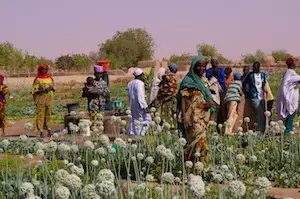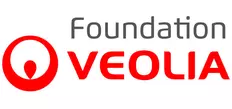
Humanitarian and Development
Sponsor
Anne-Sophie Pierre
Place
Districts of Dosso, Tahoua and Diffa, Niger
Grant(s)
50 000 € to the Selection Committee at 2009/03/31
Project leader
« This project fits in neatly with the responsibility that the Veolia Environnement Group has agreed to assume to achieve the Millennium Goals. By March 2010, there will be another approximately 10 000 beneficiaries. It also attests to the importance of the role of women in development and particularly for access to water and food security. 81% of the direct beneficiaries of this project are in fact women. »
The sponsoring committee
Since 1992, Agrisud has been focusing on the poorest inhabitants of the planet to help them build up their self-sufficiency by relying on the various levers of the market economy.
In Africa and South Asia, it has succeeded in supporting the creation of 22 000 very small businesses, which employ nearly 90 000 persons.
In Niger, it is primarily engaged in the service of a fundamental need : ensuring the food security of the poorest villagers, particularly in the Sahel.
In three districts - Dosso, Tahoua and Diffa - it is developing agricultural diversification programs, helping the administrative community managers to better manage the risk of food crisis, and also backs the local NGOs.
Water, yes, but quality water
Among all its missions, it has applied to the Veolia foundation for financial aid that it can grant and for the technical support that its engineers, in France and in Niger, are capable of providing. In 28 rural boroughs, it is doing everything it can to guarantee the economic and ecological effectiveness of its projects.
The ecological aspect obviously involves the battle to ensure reliable access to water, and fight erosion and desertification.
In concrete terms, in each of the boroughs, 28 market garden sites already earn resources for 1 332 families. Neatly developed, and mainly handled by the women, they have also benefited from crop irrigation solutions. And the core of the problem is precisely here: given the tremendous precariousness in which the families live, this water is also used as drinking water - but its quality is not at all guaranteed.
Agrisud International therefore asked the Veolia foundation to help it to drill 40 new wells and 96 dredging sumps for irrigation. Subsequently, it wants the group's experts to perform the necessary analyses in order to evaluate the quality of the water accurately. Based on these studies, it will then be possible to propose measures to conserve and/or improve the water intended for human consumption, and to familiarize the families with water related health safety actions.

